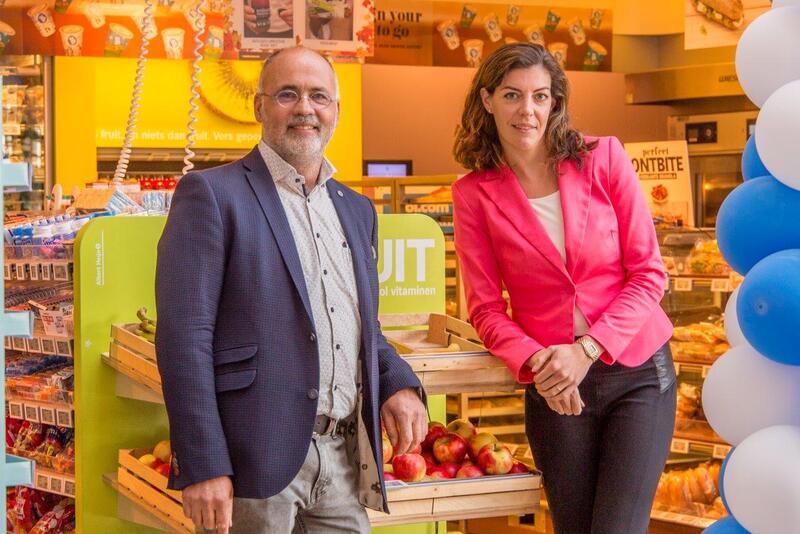
According to representatives from Ahold Delhaize and Albert Heijn, ornamental plant growers across the world need to provide more transparency about their products and the way in which they are cultivated. Doing so will only strengthen their position as suppliers to supermarket chains. ‘Continuous improvement is only possible if the relationship between the producer and the buyer is clearly defined.’
Leon Mol is the director of product safety and social compliance at Ahold Delhaize and responsible for ensuring that the animal and plant-based fresh products are of a sustainable nature. Mol believes that the potato, vegetable, and fruit sector is ahead of the ornamentals sector in terms of sustainability. But this lead comes as no surprise, as food safety has been a deciding factor in the potato, vegetable, and fruit sector for many years already. ‘Ahold Delhaize wants to firstly understand what the issues are for the ornamentals sector and how improvements can be made. With twenty supermarket chains across the world, this is important to us, as we want to distinguish ourselves from our competitors: other retail chains as well as sales channels such as florists, retailers, and the day markets. And this all begins with a reliable and responsible product.’
Sharing information
Ahold Delhaize considers ornamentals cultivation as a specific category in their range and wants to develop their own approach to ornamentals that will benefit the grower and their position. Maximum Residue Limits (MRL) do not play a role in this approach, as flowers and plants are not intended for consumption.
Due to these differences, Leon Mol believes that the ornamentals chain should not have to copy the measures that apply to the potato, vegetable, and fruit sector. ‘What we do want to see, however, is that ornamental plant growers become more transparent, environmentally friendly, and focused on reducing emissions. Their own motivations and ambitions are also an important factor to us.’
Information included with the product is essential according to Mol. ‘After all, the products from the ornamental plant sector are sold under our labels and brands in the shops. We need to be able to provide consumers with information about the product and show how they are produced. We are not able to do this if we do not have that information. If there is no information, there is no product.’
Reactive attitude
His colleague, Nienke Weidema, is in charge of ensuring the quality and sustainability of potatoes, vegetables, fruit and flowers and plants at Albert Heijn. According to Weidema, ornamental plant growers in the Netherlands and elsewhere are already taking steps in the right direction when it comes to the requirements set for transparency. ‘We work with standard growers and cultivators in a close and solid partnership, so that we know who we are purchasing from. We want to know from all our ornamental plant growers which crop protection products they use and what their policies are in terms of energy management, water management, and social responsibility.’
In addition, Weidema believes that Dutch ornamental plant growers and their colleagues stand to benefit from further improvements and are able to strengthen their position with the retail chains. ‘We sometimes come across reactive attitudes in the ornamentals sector. Many ornamental plant growers tend to think that if the trading companies don't require additional effort or extra information, then there is no need to work on improving these aspects.’
According to Weidema, this attitude can't provide a foundation for a bond of trust and the open exchange of information that are essential for building a relationship between the supplier and the buyer. ‘The ornamentals sector needs to work on this, as continuous improvement can only be achieved if the relationship between the two is clearly defined. Dutch vegetable and fruit growers are often far ahead in terms of this and transparent working practices.’
Insight into quality improvement
Leon Mol emphasizes that improving the sustainability of the entire ornamentals chain is essential. Albert Heijn is the only retail chain that participates in the Floriculture Sustainable Initiative (FSI), which aims to ensure that 90% of all flowers and plants meet a basic level of sustainability by 2020.
Currently, Albert Heijn is working together with the Dutch 'Milieu Project Sierteelt' (MPS, environmental project for ornamental plant cultivation) to obtain more data. MPS monitors the environmental efforts made by ornamental plant growers and certifies affiliated growers. This means that it has a great deal of data at its disposal.
According to Mol and Weidema, MPS certification and other certifications are important, but they don't always tell the entire story. ‘Certificates guarantee a basic level of quality, but they do not provide insight into the quality improvement that takes place year after year. For this, you need an analysis of all the cultivation data. But then we still arrive at the same conclusion that more information is needed in order to improve the entire chain.’
The two sides of the ornamentals chain
According to Nienke Weidema, the ornamentals chain has two distinct sides. On the one side the supermarkets and on the other the sales channels, such as florists and retailers, garden centres, DIY stores, and the daily markets. ‘We, as the supermarket chains, put a great deal of effort into reassuring our customers that our suppliers have the necessary certificates and deliver the required level of quality. We definitely do a great deal more in this regard than the other sales channels. The sector, which includes the entire chain of growers, trading companies, and auctions, has to want to instigate change. Unfortunately, we are not receiving much feedback about this.’
About Ahold Delhaize
Ahold Delhaize is a group of supermarket chains in Europe and the USA. The major supermarkets that belong to this group are Albert Heijn in the Netherlands and Delhaize in Belgium. The group also has supermarket chains in Greece, the Czech Republic, Serbia, and Romania. In the USA, Ahold Delhaize owns Food Lion, Giant Food, Hannaford, and Stop & Shop.